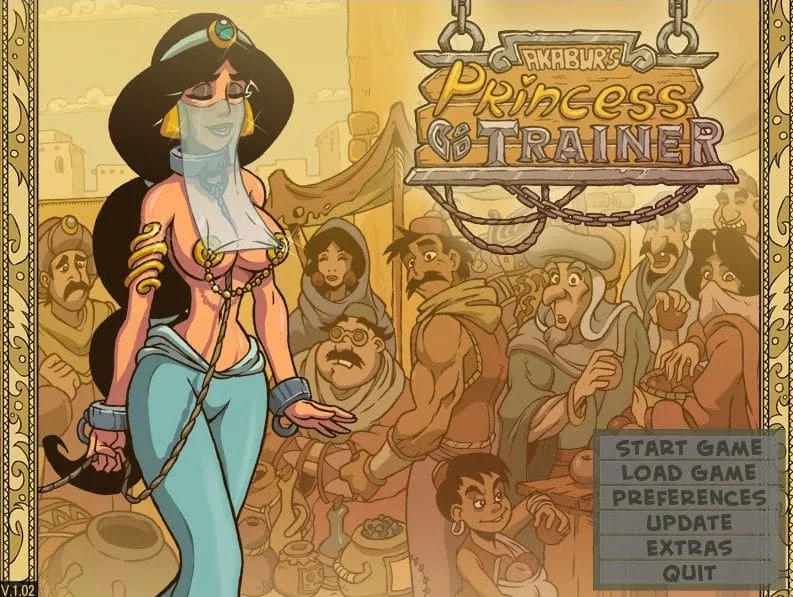
Strangers on Paper
Play Strangers on Paper
Strangers on Paper review
Explore the Story, Gameplay, and Unique Features of Strangers on Paper
Strangers on Paper is a story-driven visual novel that invites players to reconnect with characters from their past through meaningful choices and narrative depth. Unlike many games in its genre, it emphasizes emotional storytelling and character development, making each decision impactful. In this article, we’ll explore the core elements of Strangers on Paper, from its gameplay mechanics to its unique approach to relationships and narrative, providing insights and practical advice for new and returning players.
Understanding Strangers on Paper: Story and Gameplay
Ever sat down with an old photo album and felt a wave of nostalgia so strong it almost hurt? 😔 That bittersweet mix of joy for the memories and sadness for the connections that faded—that’s the exact feeling Strangers on Paper captures and turns into an incredible interactive story experience. If you’re fed up with games that prioritize flashy action over a meaningful plot, you’ve found your next obsession. This isn’t just a game; it’s a journey back into your own past, asking the poignant question: what if you had a chance to reconnect?
The Strangers on Paper story is the undeniable heart of the entire experience. It’s a masterclass in emotional storytelling game design that had me completely hooked from the first minute.
### What Is Strangers on Paper About? 🤔
You step into the worn-out shoes of Alex, a freelance writer who, after a major life shake-up, moves back to their sleepy hometown. 🏡 The premise is beautifully simple yet deeply relatable: you’re tasked with writing a series of articles about the concept of “home.” This assignment forces Alex—and by extension, you—to reach out to four people from their past. These aren’t just random faces; they’re former friends, almost-lovers, and old rivals with whom your character lost touch.
The genius of the Strangers on Paper story is how it explores the idea that people change. The person you knew in high school or college isn’t the same person a decade later, and neither are you. Your goal isn’t just to interview them; it’s to truly reconnect, to bridge the gap that time and circumstance created. The narrative delves into mature themes like regret, forgiveness, ambition, and the quiet complexities of adult life, making it a profoundly moving emotional storytelling game.
I remember one particular interaction with a character named Leo, an old bandmate. A seemingly small dialogue option I chose early on—asking about his family instead of his career—completely changed the tone of our entire relationship. It unlocked a vulnerable side of him I wouldn’t have seen otherwise, and it made me realize how often in real life we stick to safe, superficial topics. This game pushes you to go deeper. 💙
### How Does the Gameplay Work? 🎮
If you’re new to the genre, don’t worry! The Strangers on Paper gameplay is intuitive and puts the power of the story directly in your hands. At its core, it’s a branching narrative driven by the visual novel choices you make during conversations.
Think of it like this: you’re reading a fantastic book, but every few paragraphs, you get to decide what the main character says or thinks. These decisions range from the seemingly trivial (what to order at a bar) to the monumentally important (whether to confront someone about a past betrayal). This is the essence of its interactive story experience—your choices carry weight and directly shape Alex’s relationships and the story’s outcome.
The Strangers on Paper gameplay is brilliantly designed to mirror real-life social dynamics. Some choices are mere flavor, adding color to a scene. But others are critical junctures that dramatically alter the path of your story, locking or unlocking entire scenes and endings. This reflects how, in reality, some comments are forgotten by tomorrow, while others can define a relationship for years. The game doesn’t always signal which is which, making your decisions feel genuinely organic and sometimes nerve-wracking! 😅
Here’s a quick breakdown of how these mechanics come together:
| Gameplay Feature | Narrative Impact | Player Experience |
|---|---|---|
| Dialogue Choices | Directly influences character relationships and story branches. | You feel responsible for the tone and direction of every conversation. |
| Relationship Meters | Hidden meters track affinity with each character, unlocking new scenes. | Provides subtle feedback without breaking immersion. |
| Time Management | Choosing who to spend your limited time with each day. | Adds a layer of strategy and reflects the opportunity cost of real-life connections. |
| Multiple Endings | Your cumulative choices lead to vastly different conclusions for each character. | Creates immense replayability and a desire to see every possible outcome. |
This structure ensures that the Strangers on Paper gameplay is never passive. You are an active participant, constantly molding the narrative with every decision.
### What Makes Its Storytelling Unique? ✨
So, what sets this game apart in a sea of narrative adventures? Two words: authenticity and maturity. Many games feature character development in games, but few handle it with such a delicate, realistic touch. The branching narrative isn’t just about getting a “good” or “bad” ending; it’s about exploring the nuanced, often messy, outcomes of human interaction.
The game’s unique flavor comes from its commitment to adult storytelling. This doesn’t just mean it includes mature content (which it does, handling it with purpose rather than titillation); it means it deals with adult problems. We’re talking about career dissatisfaction, the weight of family expectations, dealing with past failures, and the courage it takes to be emotionally available. This focus makes the character development in games here feel earned and profound. You watch these characters, and yourself, grow in real-time.
Furthermore, the visual novel choices are crafted with incredible subtlety. You won’t find obvious “Good Guy / Bad Guy” options. Instead, you’re often choosing between different shades of gray. Do you be brutally honest to clear the air, or gently compassionate to protect someone’s feelings? There’s rarely a perfect answer, which is exactly how life works. This design philosophy elevates it from a simple game to a powerful commentary on connection itself.
My first playthrough was a mess of regret and second-guessing—I accidentally ghosted one character because I got too invested in another’s plotline! 😬 But that’s the beauty of it. It made my second playthrough feel like a genuine chance to do better, to be more mindful of the people in Alex’s life. That level of personal investment is rare, and it’s why the Strangers on Paper story will stick with me for a long time.
It’s a powerful reminder that the stories we cherish most are the ones we help write.
Strangers on Paper stands out as a visual novel that prioritizes meaningful storytelling and character connections over typical genre conventions. Its thoughtful approach to choices and relationships offers players a unique experience that blends emotional depth with interactive gameplay. Whether you’re new to the game or revisiting it, embracing its narrative nuances can lead to a rewarding journey. Dive into Strangers on Paper to explore its rich story and discover how your decisions shape the outcome.













